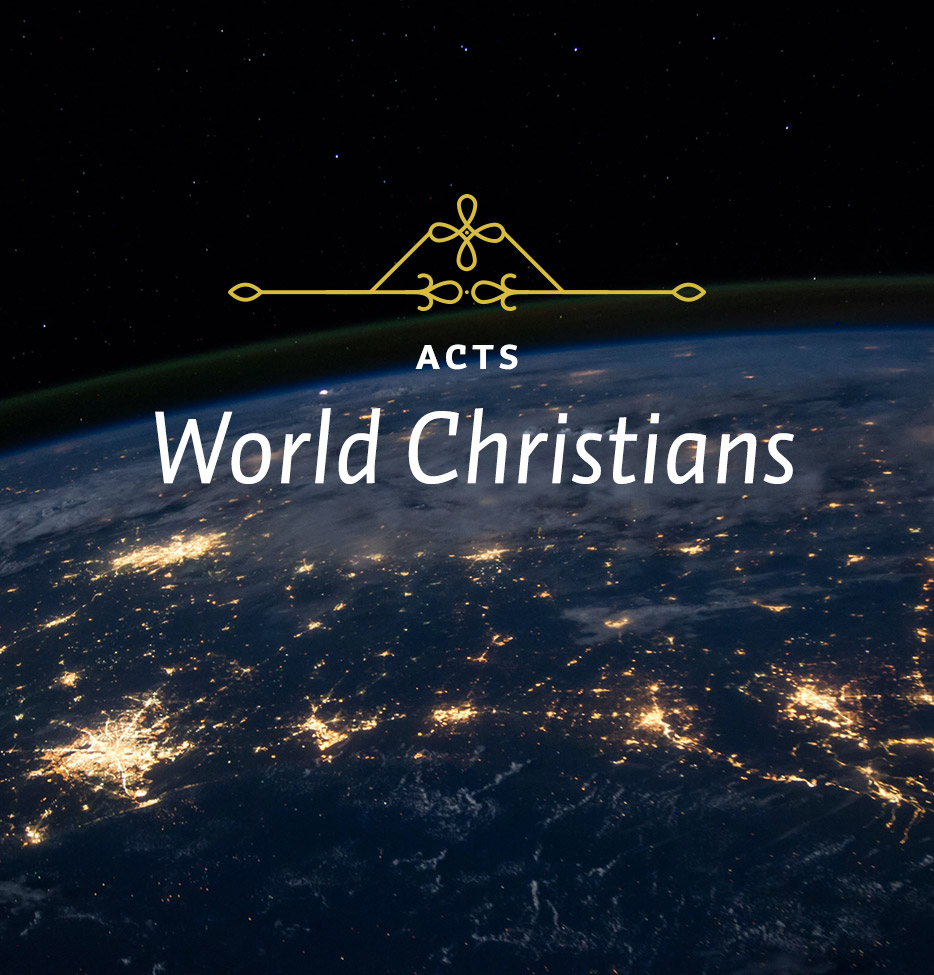The introduction to the book of Acts contains two verses which are of special importance for anyone who wants to understand this book. They provide an outline for it.
There are four geographical references in verse 8: Jerusalem, Judea, Samaria and the ends of the earth. In the New International Version, the middle terms are combined by the verse’s punctuation so that there is a three-part progression: Jerusalem (comma), Judea and Samaria (comma), and the ends of the earth. This is because in the Greek text, the word “Samaria” does not have a definite article before it. The article occurs before “Judea,” which suggests that Judea and Samaria belong together, and this makes a three-part outline for the book. Acts 1-11 deals with the preaching of the Gospel in Jerusalem. In Acts 8-12 the gospel expands beyond Jerusalem into Judea and Samaria. Acts 13-28 records the expansion of the Gospel throughout the Roman world.
But it is not chiefly for that reason that we need to study these key verses. They are also important because they give a plan for witnessing which has made Christianity a world religion.
Each version of the Great Commission has its own emphasis. Like Acts, John’s version speaks of Christians being sent into the world, but the emphasis is upon the nature of the Christian’s witness: “As you sent me into the world, I have sent them into the world” (John 17:18). That is, the disciples were sent into the world as Jesus was sent into it. He was to be the model for their ministry. Matthew stresses the authority of Jesus, on the basis of which they were to make disciples of all nations: “All authority in heaven and on earth has been given to me” (Matt. 28:18). They were to call all people to Christ, because the Son of God had authorized them to do so.
When we turn to the seventh and eighth verses of Acts 1, we find that the emphasis is upon two other things. First, the disciples were to be empowered for their task by the Holy Spirit. Second, they were to be agents of a worldwide geographical expansion of Christianity. The two go together! Jesus said that they would receive power from the Holy Spirit and that, when that happened, they were to go into the entire world with the Gospel. That is, their witness was to begin at Jerusalem; then it was to expand outward like ripples on a pond, embracing Judea and Samaria, which lay next at hand, and then overflowing beyond those known communities to the farthest reaches of the Roman Empire.
I do not sense that Christians today are always fully aware of how thoroughly that plan was carried out by the first generation of the church. The entire pagan world acknowledged as a fact the claim of the early Christian apologists that Christianity had permeated everywhere. Tertullian, who wrote around the year 200, declared in his Apology, “We are but of yesterday, and we have filled every place among you—cities, islands, fortresses, towns, market places, the very camp, tribes, companies, palace, senate, forum—we have left nothing to you but the temples of your gods.”1
Historians have asked how this first generation of Christians, who for the most part were unlearned men and women, could have propagated the Gospel so rapidly. Harnack, the great German church historian of the nineteenth century, knew how. He said, “We cannot hesitate to believe that the great mission of Christianity was in reality accomplished by means of informal missionaries.”2 That was the secret. Every Christian—not just a formal order of missionaries supplied by the Christians at home—considered it his or her obligation to bear witness.
1Tertullian, “Apology,” in The Ante-Nicene Fathers, vol. 3, ed. Alexander Roberts and James Donaldson (Grand Rapids: Wm. B. Eerdmans, 1963), 45.
2Adolf Harnack, The Mission and Expansion of Christianity in the First Three Centuries (New York: Harper & Brothers, 1961), 368.






